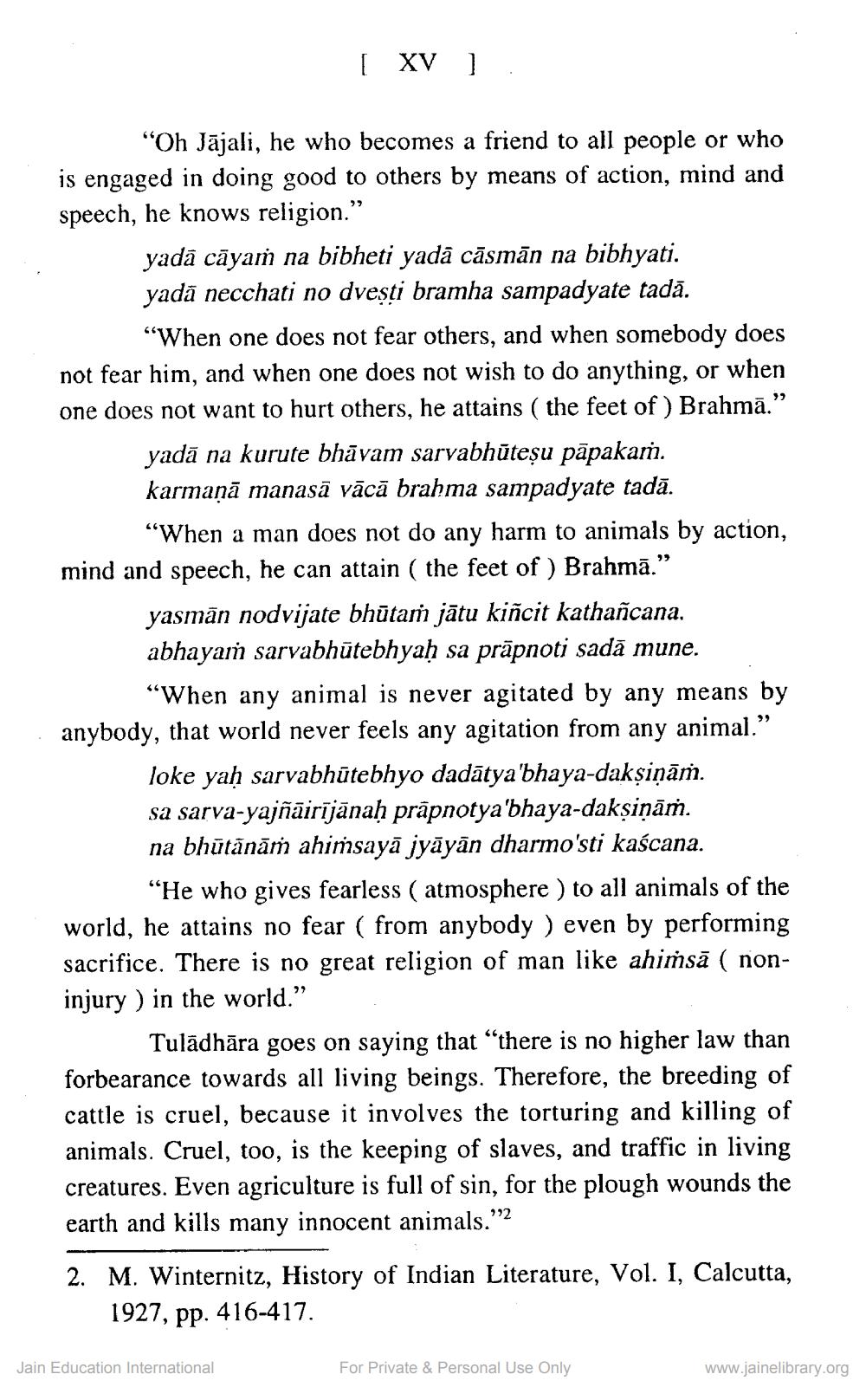________________
[ XV].
"Oh Jājali, he who becomes a friend to all people or who is engaged in doing good to others by means of action, mind and speech, he knows religion.”
yadā cāyam na bibheti yadā cāsmān na bibhyati. yadā necchati no dvesti bramha sampadyate tadā.
“When one does not fear others, and when somebody does not fear him, and when one does not wish to do anything, or when one does not want to hurt others, he attains ( the feet of ) Brahmā.”
yadā na kurute bhāvam sarvabhūteņu pāpakar. karmaṇā manasā vācā brahma sampadyate tadā.
“When a man does not do any harm to animals by action, mind and speech, he can attain ( the feet of ) Brahmā."
yasmān nodvijate bhūtam jātu kiñcit kathañcana. abhayam sarvabhūtebhyaḥ sa prāpnoti sadā mune.
“When any animal is never agitated by any means by anybody, that world never feels any agitation from any animal.”
loke yaḥ sarvabhūtebhyo dadātya'bhaya-daksiņāṁ. sa sarva-yajñāirījānaḥ prāpnotya'bhaya-daksiņāṁ. na bhūtānām ahimsayā jyāyān dharmo'sti kaścana.
“He who gives fearless ( atmosphere ) to all animals of the world, he attains no fear ( from anybody ) even by performing sacrifice. There is no great religion of man like ahiṁsā ( noninjury) in the world.”
Tulādhāra goes on saying that “there is no higher law than forbearance towards all living beings. Therefore, the breeding of cattle is cruel, because it involves the torturing and killing of animals. Cruel, too, is the keeping of slaves, and traffic in living creatures. Even agriculture is full of sin, for the plough wounds the earth and kills many innocent animals.”2
2. M. Winternitz, History of Indian Literature, Vol. I, Calcutta,
1927, pp. 416-417.
Jain Education International
For Private & Personal Use Only
www.jainelibrary.org




